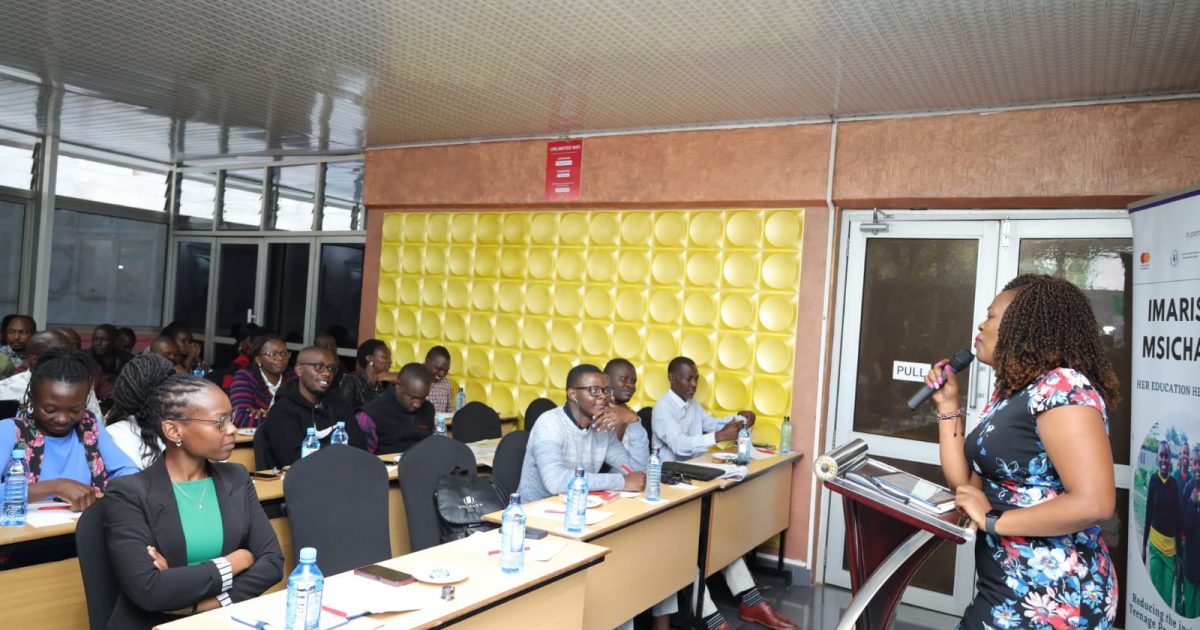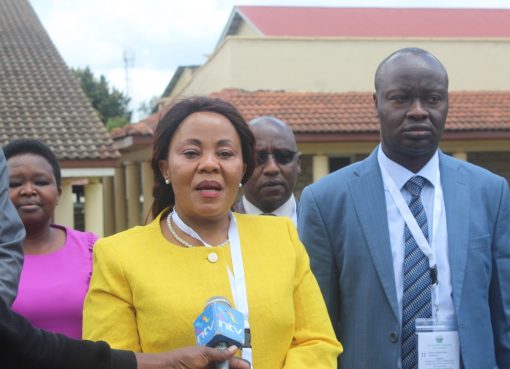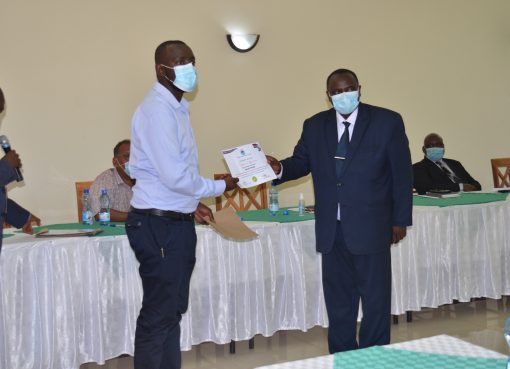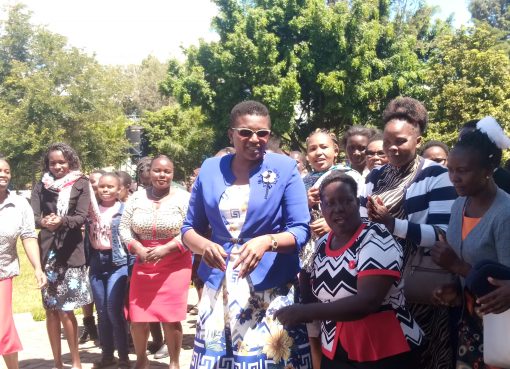Forum for African Women Educationalists in Kenya (FAWEK) has trained journalists on Gender responsive and effective Sexual and Reproductive Health Rights (SRHR) reporting.
The two-day training organized by FAWEK under the Imarisha Msichana project in partnership with MasterCard foundation seeks to enhance the capacity of media practitioners to report professionally and ethically on gender sensitive reporting and SRHR reporting.
The journalists were drawn from various Kenyan television, print media and radio stations across the 20 counties where the Imarisha Msichana project is being implemented.
The training aimed at arming the journalists with the necessary tools and approach required to cover sensitive and complex SRHR topics with the care, sensitivity, and accuracy they demand.
Notably teenage pregnancies, gender-based violence, access to contraception, and harmful practices like female genital mutilation (FGM) all require more nuanced, consistent, and compassionate coverage.
FAWE Kenya CEO Jeanette Nyanjom, while speaking during the event in Nairobi said the training represents a vital step toward bridging the knowledge gap towards framing and coverage of sexual and reproductive health rights reporting.
“Surveys and media scan conducted by FAWEK reveal that SRHR is misunderstood, underreported and misreported in the media” she said, adding that SRHR issues affect countless women, young people, and entire communities.
Nyanjom said the low coverage is attributed to the culture of silence, lack of training, and reluctance to properly articulate SRHR issues and their impact on society as newsworthy or of human interest.
She said that during the COVID-19 pandemic, the urgency of these issues became clear. Teenage pregnancies soared, with around 150,000 cases reported in a single year.
“For so many girls, this meant disrupted education, limited opportunities, and altered futures.” she said.
Nyanjom said some of intervention to curb this menace include collaboration with key stakeholders in the generation of credible an acceptable data on teen pregnancies in Kenya that advises on apt solutions
“Championing for re-entry of girls to school, sensitization forums for girls, young women, boys, young men, parents and community leaders on human sexuality and prevention of teen pregnancies is important,” she further added.
President of the Kenya Editors Guild Zubeidah Kananu said training provides media practitioners with the knowledge to address SRHR comprehensively and responsibly, and they foster a supportive network of journalists committed to ethical and impactful reporting.
“Expanding our training programs, collaborating with experts, and setting up mentorship systems can ensure we have the tools to report on SRHR in a way that is informed, respectful, and transformative,” she said
Kananu observed that as SRHR issues evolve, particularly with advancements in healthcare and changing societal norms, we must stay informed and prepared.
“It’s time to confront the reality that our reporting on SRHR can and should set the agenda, rather than waiting for it,” said Kananu, adding that as journalists, we must ask ourselves how we can better bring such stories to light.
She divulged that men play a critical role in advancing SRHR. Fathers, husbands, brothers, and leaders in our communities all have an opportunity to champion SRHR by standing against harmful practices like FGM.
She divulged that as journalists, we can encourage this involvement by highlighting stories where men are actively contributing to SRHR advocacy and supporting their partners, families, and communities.
She said the media plays an essential role in advocating for policies that allow young mothers to return to school without discrimination.
“As journalists, we can spotlight success stories of young mothers who have returned to school and achieved their dreams, showing that motherhood should not be a barrier to education,” she added.
Kananu observed that as SRHR issues gain more visibility on digital platforms misinformation has become a significant obstacle.
She said that the media has a responsibility to combat these false narratives by collaborating with health professionals and researchers, ensuring our reporting is grounded in credible, evidence-based information.
“By including the voices and perspectives of youth, we can create more relatable content and encourage young people to seek accurate information,” she said adding that we can’t afford to have misinformation to undermine public understanding or trust.
On her part Association of Media Women in Kenya (AMWIK) Executive Director Queenter Mbori said as journalists, we must take the tools provided by FAWEK and others and lead the charge toward proactive, transformative SRHR reporting.
Mbori said many media houses have created gender desks dedicated to amplifying voices around gender and SRHR issues.
“These desks give us the power to tell stories that bring about change, but only if we use them to their full potential,” she said.
The Imarisha Msichana project is an initiative implemented by FAWE Kenya in partnership with the MasterCard Foundation. The program is being implemented in 20 counties in Kenya namely; Nakuru, Nairobi, Machakos, Elgeyo Marakwet, Kiambu, Garissa, Bungoma, Kakamega, Nyeri, Migori, Murang’a, Kajiado, Narok, Homa-Bay, Trans-Nzoia, Nyandarua, Busia, Meru, Siaya, and Turkana.
By Anita Omwenga and Florence Kinyua





